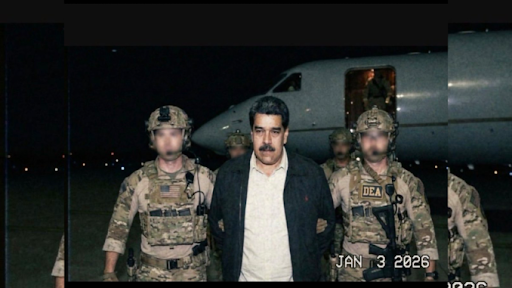While often seen as a time of hardship and dormancy, winter has also played an unsurprising role in shaping the course of history. From ancient times to modern conflicts, astute military commanders have harnessed the unique challenges and opportunities presented by winter to gain a decisive edge over their adversaries. As the true cold comes, take a look at how the icy grip of winter has been wielded as a weapon across different eras and cultures.
The Vikings - Masters of the Frozen Seas
The Vikings, renowned for their seafaring prowess and raiding culture, were intimately familiar with the challenges and advantages of winter warfare. Their longships, capable of navigating icy waters, allowed them to strike targets that were considered inaccessible during other seasons. The frozen rivers and waterways of Northern Europe became highways for Viking raids during winter. Their enemies, accustomed to fighting in warmer months, were often caught off guard by these unexpected attacks. The harsh winter conditions, coupled with the Vikings' fierce reputation, instilled fear in their opponents. The very sight of Viking longships emerging from the icy mist was often enough to demoralize defenders.
In 845, a Viking fleet led by “Reginherus” Ragnar Lothbrok sailed up the Seine River during winter and sacked the city of Paris. The frozen river allowed them to bypass traditional defenses and penetrate deep into Frankish territory. Given the speed with which the Viking force was able to enter the city, their quick victory over half of the French army and subsequent sacking of the city was inevitable. The raiding force only withdrew after the French crown paid a ransom of 2750kg in gold and silver.
Spanish Guerrilleros - Utilizing Winter's Harsh Embrace
During the Napoleonic Wars, Spanish guerrilleros effectively used the harsh winter conditions of the Iberian Peninsula to their advantage against the French army. The mountainous terrain and heavy snowfall hindered the movement of the French, which were accustomed to fighting in more temperate climates. Supply lines were disrupted, and the French troops struggled to adapt to the cold and unfamiliar environment. The guerrilleros, familiar with the local terrain and weather conditions, used hit-and-run tactics to harass the French. They ambushed isolated units, disrupted supply lines, and then melted back into the mountains, taking advantage of the winter's cover.
In the winter of 1808-1809, the guerrilleros, aided by the harsh winter, inflicted heavy losses on the French army during their retreat from Madrid. The combination of guerilla warfare and winter conditions contributed significantly to Napoleon's eventual defeat in Spain, showing that the French military could be beaten on the field and raising the morale of the Spanish forces.
Green Berets - Embracing Winter Warfare in the Modern Era
The U.S. Army Special Forces, also known as the Green Berets, are trained to operate in all environments, including extreme cold weather conditions. While their commercials may not be as good as the Marine Corps, they have utilized winter warfare techniques in various conflicts to great effect, particularly during the Cold War and in more recent operations in Afghanistan. Green Berets are experts in mountain warfare, which often involves operating in snowy and icy terrain. They are trained in winter survival skills, mountaineering techniques, and cold weather combat tactics. During the Cold War, Green Berets were trained to conduct unconventional warfare behind enemy lines in the event of a Soviet invasion of Europe. This included operating in winter conditions and utilizing the terrain to their advantage.
In the early days of the war in Afghanistan, Green Berets operated alongside Afghan resistance fighters in the harsh mountainous terrain. The team that entered the country to coordinate the initial invasion did so on horseback through weather and terrain the enemy did not anticipate was possible. Their ability to operate effectively in winter conditions was crucial in helping to topple the Taliban regime.
The Enduring Legacy of Winter Warfare
Even these few historical examples demonstrate the enduring impact of winter warfare. Across different eras and cultures, military leaders have recognized the strategic value of mastering the challenges and opportunities presented by winter.
Winter warfare requires specialized skills, equipment, and a deep understanding of the environment. Those who have mastered it have often gained a decisive advantage, using the cold and unforgiving landscape to surprise their enemies, disrupt their logistics, and ultimately achieve victory. As the literal and figurative climate change happening today continues to alter potential battlespaces and create new challenges, the lessons of winter warfare will remain relevant for strategists and soldiers alike.
Featured image: U.S. Army Green Berets with 10th Special Forces Group (Airborne) load into a Finnish Army NH90 transport helicopter assigned to Utti Jaeger Regiment in Lapland, Finland, March 12, 2023. (U.S. Army photo by Staff Sgt. Anthony Bryant)



%201.svg)











